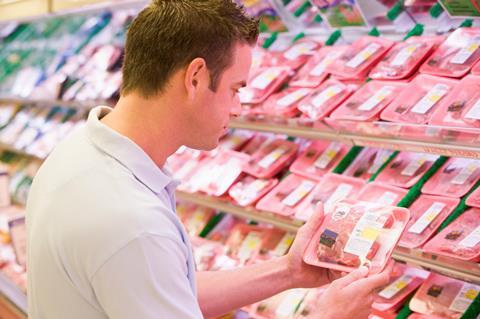Market research firm Kantar has published its supermarket share and inflation update for the four weeks to 3rd November, finding trips to the supermarket hit a four-year high.

Grocery price inflation stood at 2.3% for the four-week period ending 3rd November 2024, slightly up on September’s figure but still within “typical levels”, said Kantar. It found that the rate was below 3% every month since the early summer, with promotional activity by the grocers helping to keep prices down and support the sale of branded goods in particular.
Take-home sales at grocers in October increased to reach £11.6 billion, making it the biggest sales month of the year so far.
Fraser McKevitt, head of retail and consumer insight, explained: “October 2024 was the busiest month for the supermarkets since March 2020, when people were preparing for the first national lockdown. Trip numbers have been going up gradually for some time, but this steady march hasn’t reached pre-Covid levels of shopping frequency just yet. The average for each household is slightly over four trips per week.”
“Spending on deals has been going up consistently for the past 18 months and it now makes up 28.6% of all sales. Offers are helping to lift branded sales especially. The growth gap between brands and own-label is the biggest it’s been since February 2021, sitting at 4.9% and 2.7% apiece. We’ll be keeping a close eye on those numbers to see whether the gap continues to widen in the run up to Christmas.”
Retailers achieve sales growth as trips to supermarkets increase
Kantar said Ocado had “topped the growth table”, boosting its sales by 9.5% over the 12 weeks to 3rd November 2024. Lidl was the fastest growing retailer with a bricks and mortar presence for the 15th period in a row, with sales up by 7.4%. The retailer secured 326,000 additional shoppers, more than any other retailer, and saw “particularly strong” fresh produce sales growth at 22%.
Tesco sales rose by 4.6% taking the retailer to 27.9% of the market, up 0.6% on the year. Spending at Sainsbury’s increased by 4.4% to reach an overall share of 15.5%, with the retailer seeing a rise in both shopper numbers and trips this period.
Asda now holds 12.5% of the market. Morrisons saw a sales growth of 2.4%, with take-home sales remaining at 8.6% Aldi held its 10.4% share of the market.
Co-op and Waitrose’s shares sit at 5.7% and 4.6% respectively, with Iceland now making up 2.2% of the market, the same proportion as a year ago.















